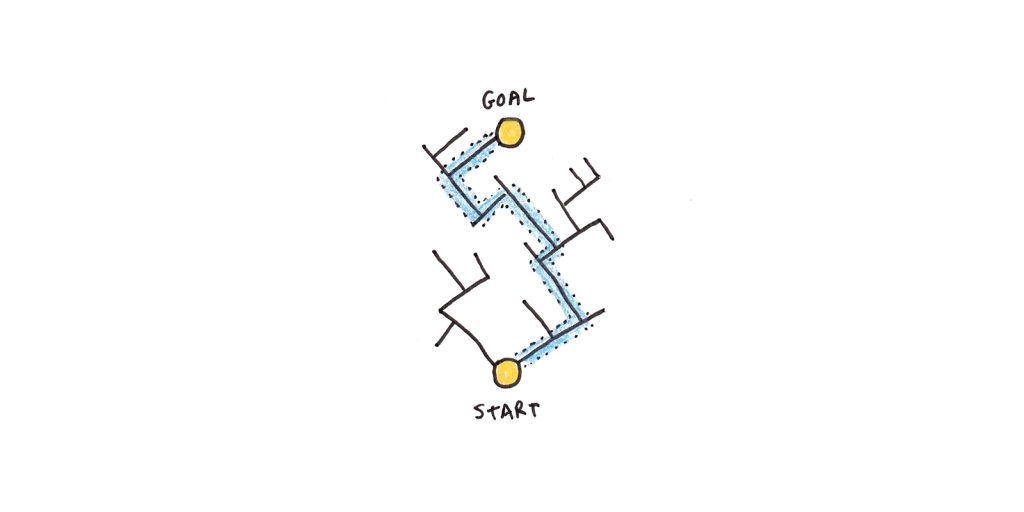
We all have our causes. Henry Heimlich was unswayable to teach the world that you can save a choking victim with rectal thrusts. I want to convince the world to eat unseasoned vegetables, help irksome strangers, and do eccentric thought exercises.
. . . and many other things. Here are ten insights I finger a need to impress on the world somehow.
Take my pleadings as seriously as you like. Ive written in greater detail well-nigh some of these points already, and will elaborate on the others eventually.
1. Your shopping cart doesn’t need to go wherever you go.
This is a minor point, but most people dont seem to know this. You do not have to wheel your cart right up to every item you want to buy at the grocery store. The cart is a bin with wheels, not a car. If theres any observable cart traffic, you can park it in an out of the way place, then fetch any nearby items much quicker on foot. It’s seldom necessary to navigate a two hundred pound cargo bin lanugo an walkway zonkers with other carts, just considering a few items on your list are in that aisle. Gather on foot, move virtually the store with the cart. This method ensures you never need to woodcut anyone from accessing anything or passing by, and will scrutinizingly never have to wait overdue someone else who is doing that. Treat the cart like a mothership rather than a truck.

2. Societies are largest when liberals and conservatives alimony each other in check.
Liberalism and conservatism are two types of thinking virtually all humans can understand. We can all fathom the value of openness to new ideas and ways of life, while moreover recognizing the value of preserving whats good and questioning radical changes. Encouraged by simplistic media narratives, people tend to identify with one and demonize the other, and regard their favored perspective as the way everything must be viewed all the time. Thats a mistake. When one principle pushes the other to the margins, you get the worst societies ever. Society will only be improved by people who can alimony both these perspectives in their throne at once.
[Further reading]

3. Exercise is the magic bullet.
As I ranted well-nigh recently, the benefits of regular vigorous exercise are the equivalent of a magical pill with dozens of benefits, including a longer life, improved confidence, increased attractiveness, largest mood, and largest sleep. It works largest than any other interventions we know of for those and other ailments, and the forfeit is reasonable: a few hours of transmission labor per week. We’re unchangingly looking for magic bullets. This is the magic bullet. Its here. Its reliable. Its misogynist to all. Dont live life without taking advantage.

4. Humans want everything to be someones fault.
The human mind unchangingly wants a culprit. Misfortunes like traffic jams dont just happen theyre unchangingly the fault of bad drivers, bad municipality planners, suburban homeowners, or road crews that work too slow. Humans really dont want to confront the fact that suffering is inevitable. Its much easier for us to withstand pain or inconvenience when we can convince ourselves that it only occurs due to bad actors, rather than the ramified and virtuous physics of life. This urge to symbol bad things to bad people is probably some natural quirk of human psychology. It seems that we mostly trust this impulse, and we rarely talk well-nigh it. Ironically, it is a quirk very hands venal by bad actors who want to harness your pain and uncontrived your outrage toward their adversaries.
[Further reading]
5. Three meals a day is probably excessive for many people.
Someone has convinced the Western world that we have some biological need to eat every five hours, plane as the majority of the population is suffering from illnesses caused by overconsumption. Everyone seems to believe they will swoon into well-constructed dysfunction and suffering if they dont eat at all the customary times. In my experience, missed meal pangs dont last increasingly than a few minutes, have nothing to do with the bodys nutritional needs, and dont happen at all without a few days of not eating at that particular time. There’s no way the human soul is meant to unchangingly be digesting.
[Further reading]

6. The lived in short-lived rhymes with dived.
Nobody I know says it that way, but theyre all wrong. The lived part of short-lived is derived from the noun life it is not the past tense of the verb to live. The word short-lived describes a thing that has, or had, a short life, not something that “lived shortly.” Its the same adjective-noun inseminatin as curly-haired or gold-plated.” Just as something that has a short life is short-lived, someone who has a short pocketknife could be described as short-knived, and someone with a short wife short-wived. I know this treatise is somewhat of a lost rationalization it’s one of those cases where overwhelming misuse has made it acceptable. Pedantry aside, I think most people who use this term would want to know. The discussions virtually the topic are interesting in any case.
7. Restricting speech only helps the people in power.
I know many smart people who believe punishing harmful speech helps to defend vulnerable minorities. Theyre stuff played like a fiddle. Make no mistake: it will unchangingly be the people in power who ultimately decide what speech is allowable. They will restrict it in a way that serves them, and to the stratum to which the public lets them. The compassion of misguided activists is stuff venal by the powerful to undermine the most vital recourse disempowered populations still have: the right to say what they think is true. Curtailing speech, whether through law or social taboo, consolidates power like nothing else, as every sundowner regime has shown us. Many well-meaning people who believe theyre fighting the power are unquestionably handing them the keys.

8. Religion is not “ancient superstition.”
The unconfined religions unprotected on considering they successfully communicated something vital well-nigh the human condition to a large number of people. Their founders are probably some of the wisest and most insightful people our species overly generated. The ignorance of some followers of religious traditions (and of most detractors of religion), no matter how many, do not make those traditions nonsense. Hardline atheists and hardline fundamentalists make the same mistake when they regard religious texts as collections of factual claims, rather than instructive works of literature. Theres so much there for the inquisitive person, and nothing for the know-it-all.

9. We take morality very seriously but make moral judgments very flippantly.
Virtually everything people oppose well-nigh is a moral issue whats right and whats wrong, whos a good or bad person, who deserves to be voted off the island, et cetera. There’s nothing people superintendency increasingly well-nigh than morality, yet we make moral judgments in seconds, and seldom doubt them or entertain multiple conclusions. We act as though most questions of right and wrong are no-brainers plane when half the population utterly disagrees with us. Thats considering moral intuition and moral reasoning are completely variegated mental processes, which evolved for variegated purposes. Our intuitions our snap-judgmentsare survival reflexes that help us form coalitions with others to alimony ourselves safe. Moral reasoning is a much newer capacity, and its very nonflexible to do while your reptile smart-ass is terrified to question a popular idea, or stipulate with an unpopular person. A basic understanding of that dynamic could make us all a little less crazy.

10. You can‘t ruminate and listen at the same time.
The tendency of the modern human is to live in their throne scrutinizingly perpetually monologuing and forecasting and rehashing. This is a seldom-helpful habit most of us reinforce constantly by tumbling withal with its momentum. You can weaken the grip of the ruminative mind by commonly taking a few seconds to be quiet and listen to your surroundings. Doing this reveals something interesting: when you urgently use your sustentation for listening (or in any other intentional way) it cannot be used for increasingly rumination. Each time you do this, the gravity of the monologuing mind weakens. If plane a fraction of the population learned how to perforate their ongoing ruminative thought-mill like this, it might be a variegated world.

Not everyone will stipulate with all the whilom diatribes, and that’s the point — we have to make our cases to each other.
Id be interested to hear what youd like to convince our species of, expressly if its somewhat eccentric. Let us know in the comments.
***
Do you like Raptitude?
Do you think some of the ideas on this site are worth employing in real life?
Then you’d probably be into this: we’re doing the Raptitude Field Trip for a second time. A group of reaers and I are going to try out some classic Raptitude practices, then discuss how it went on the message board.
Its a mini-course you can do on any online device. Its easy and inexpensive, and will requite you seven perspective-giving tools you can use for the rest of your life.
Theres still a few days to sign up. UPDATE: The Field Trip is underway and registration is closed. There will be others though.
[Sign up]
[What is the Raptitude Field Trip?]
***
The field trip was exactly what I needed to lift me out of a mini-slump. Each session was unique, easy to understand, and powerful in its simplicity.
-Rebecca, Mount Vernon, WA

***






